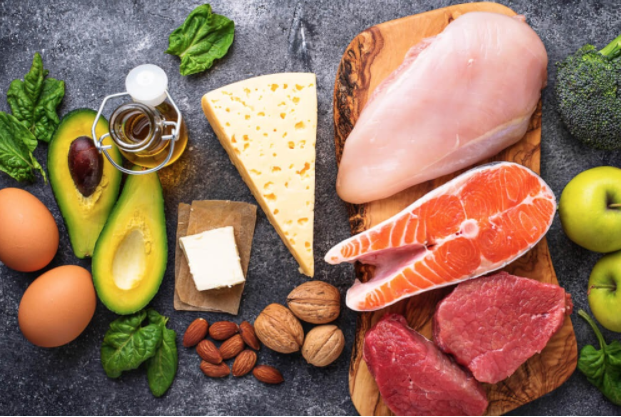Intuitive eating encourages you to listen to your body and mind when making choices about your diet. Generally, that means mindful eating and choosing healthy food based on the nutrients you feel you need — and eating healthy can mean sleeping healthy.
The Basics of Intuitive Eating
To understand how intuitive eating influences sleep quality, you should first know what intuitive eating is. These are the 10 principles of intuitive eating:
- Reject the diet mentality: No quick fixes.
- Honor your hunger: Don’t allow yourself to get so hungry you’re tempted to overeat.
- Make peace with food: Don’t put any food off-limits.
- Challenge the food police: Food behavior is neither good nor bad.
- Respect your fullness: Listen to your body when it says you’re full.
- Discover the satisfaction factor: Enjoy the pleasure and satisfaction of eating.
- Honor your feelings without using food: Don’t try to fix your feelings with food.
- Respect your body: Be realistic about your body shape.
- Exercise, feel the difference: Enjoy feeling better with exercise rather than burning calories.
- Honor your health: Choose foods that support your health and make you feel well.
Intuitive Eating and Sleep
Part of intuitive eating is choosing foods that offer the nutrition you need to live a healthy life. And food that helps you sleep is a big part of that. When you sleep well, you can support overall health and wellness.
In general, healthy foods support healthy sleep. So if you’re choosing nutritious food, you don’t necessarily need to obsess over particular ingredients or nutrients. But if you’re seeking out food that can help you sleep in particular, it’s a good idea to consider foods rich in nutrients that can help you sleep. These include:
- Tryptophan
- Carbohydrates
- Calcium
- Magnesium
- Melatonin
- Vitamin B6
Some of the best foods for sleep offer one or more of these nutrients.
Foods That Can Help You Sleep Better Include
- Milk
- Cheese
- Eggs
- Nuts including walnuts, almonds, and pistachios
- Fish
- Beans
- Rice
- Bread
- Pasta
- Potatoes
- Yogurt
- Leafy greens, including kale
- Cherries
- Bananas
- Whole grains and oats
- Tomatoes
- Raw garlic
- Chickpeas
When you focus on healthy foods, you can improve your sleep quality. When you eat can make a difference, too.
For example, some foods don’t sit well when you’re trying to get to sleep. Eating a big meal before bed can keep you up at night, especially if you’re too full. And some people suffer from reflux or heartburn at night, which can be exacerbated by spicy food, caffeine, or alcohol, especially late in the day. You can sleep propped up on a pillow, but that’s not always comfortable.
It can be difficult for your body to relax and get to sleep if it’s too busy digesting. But at the same time, going to bed hungry might keep you up, as it can be tough to go to sleep when you really need to eat. Listen to your body and pay attention to cues of hunger or fullness so you can determine whether you should eat or not before bed.
Sleeping well can translate to being healthier, but you may need to start by looking at your diet first. Intuitive eating encourages you to listen to your body’s cues, which can help you choose foods that support good health. At the same time, listening to your body’s cues for sleep can help you get the rest you need, as you can head to bed when you’re feeling sleepy.



